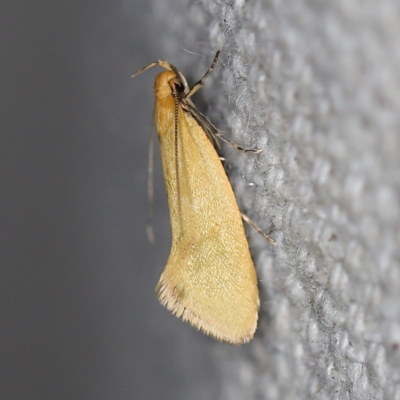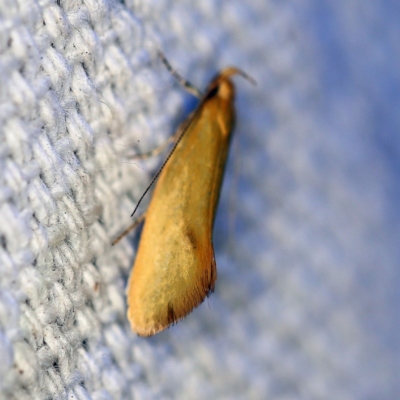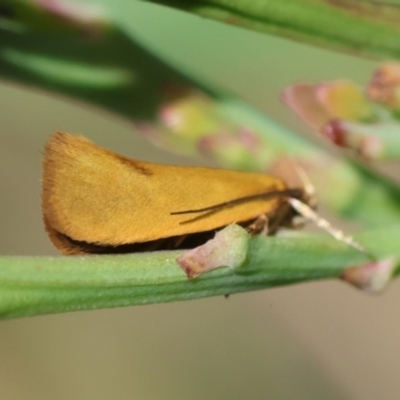Telocharacta hemicroca (A concealer moth)
There are several local species in the Telocharacta, Microbela and Parergophela genera which are similarly variably coloured. They fold their wings tent-like over their bodies when fully settled, displaying the long cilia on the termen which are often dark. They can be separated as follows.
Short labial palpi (the last joint being well below the base of the antenna, and the top segment extending only a short distance past the base of the antenna) indicate Microbela. The presence of a dark mark on the tornus suggests M. epicona rather than M. allocoma. M. epicona has a dark collar across the thorax; M. allocoma mostly does not, but it is present in a few specimens.
Long labial palpi indicate Telocharacta or Parergophela.
Telocharacta metachroa is identified by its off white to cream or light yellow forewing, sometimes an indistinct dull thoracic collar, and the broad cilia of the outer part of the termen show grey if the angle of the photo is right.
T. hemicroca is a darker yellow/orange, has no collar, has broad grey cilia on the termen, and usually has a dark tornal mark (sometimes faint).
Parergophela melirrhoa has a distinct collar across the thorax, and is stronger yellow/orange than T . metachroa.
Gallery
Regional distribution
Telocharacta hemicroca is listed in the following regions:
Map distribution
Telocharacta hemicroca has been reported at the following locations:









